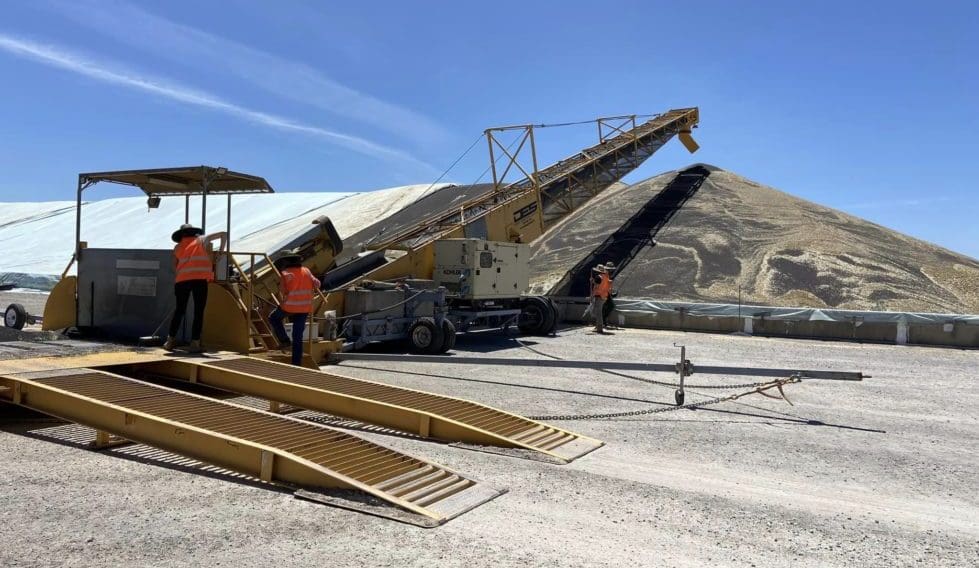
Building a canola stack at Numurkah in Victoria. Photo: GrainCorp
CANOLA exports could be negatively impacted by escalating tensions in the Red Sea, while a potential upside could be seen for wheat and barley trade.
As ocean shipping companies divert more vessels away from the Suez Canal to avoid attacks by Houthi militants and the escalating military action against them in the Red Sea, Australian canola exports may be particularly impacted as the bulk of these are destined for the EU and normally shipped through the canal.
Australia may also have to deal with some increased costs for imported goods, such as certain fertilisers, ag chemicals and machinery parts – as importers face higher freight costs, as a result of diverting around the canal and impacted areas.
RaboResearch general manager Stefan Vogel said the elevated freight costs were not expected to reach the COVID-related highs seen in 2021.
“Globally, for containerised and bulk goods, the shipping industry has to make tough decisions at the moment, either to navigate the Suez Canal and risk severe attacks by Iran-backed Houthi rebels or to take a nine to 15-day detour around Africa’s Cape of Good Hope,” Mr Vogel said.

Stefan Vogel
Mr Vogel said initial attacks by the Houthi on cargo ships had seen bulk freight rates spike in December, though these had now settled back closer to 2023 average prices.
For Australian canola exports, shipments to “our prime markets in Europe are likely to get more complicated and expensive”, he said, “as they do usually pass through the Suez Canal, while canola shipments to the EU from our competitors in Ukraine and Canada do not”.
“[T]he canal issues might help Australian wheat and barley shipments to be slightly more competitive into destination markets in Asia, the Middle East and eastern Africa”.
“This is because our key competitors from Russia, Ukraine, the EU and even the east coast of the US will struggle to get to these destinations as they usually pass through the Suez Canal, while Australian grain does not.”
Mr Vogel said the impact of the Suez-Red Sea crisis on agricultural fertiliser and other farm input imports is likely to be mixed.
“Fertilisers used on farm in Australia are largely imported in bulk.
“At least for nitrogen and phosphate fertiliser supplies, they should not be impacted much as they mostly derive from Asia and the Middle East and don’t pass through the Suez Canal.
“Potash, however, largely comes to Australia from North America and Europe and some of those shipments could be impacted by the attacks and re-routing of vessels.”
Containerised shipments – both to and from Australia – will also be affected, Mr Vogel said.
“And this is likely to have time and cost impacts on plant protection chemicals and machinery parts coming into Australia as well as Australian meat and fresh produce exports.”
Source: RaboResearch

HAVE YOUR SAY